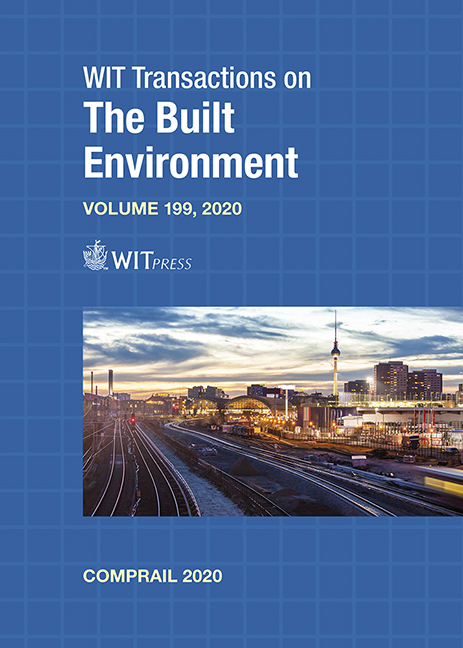GENERATION OF DISPATCHING SOLUTIONS IN A ROLLING TIME HORIZON FRAMEWORK WITH THE AID OF TABU SEARCH
Price
Free (open access)
Transaction
Volume
199
Pages
10
Page Range
97 - 106
Published
2020
Paper DOI
10.2495/CR200091
Copyright
WIT Press
Author(s)
ULLRICH MARTIN, MARKUS TIDEMAN, WEITING ZHAO
Abstract
To increase the robustness of railway operation, at the Institute of Railway and Transportation Engineering (IEV) of the University of Stuttgart, a proactive dispatching algorithm has been developed. At the beginning, the block sections of a railway network are classified automatically depending on their specific operational risk index. Therefore, numerous timetables are modified based on random disturbances generated in a Monte Carlo scheme, then the modified timetables are simulated in RailSys® software and, finally, the resulting waiting times in the studied network are calculated to obtain an operational risk map. Considering this operational risk map, near-optimal dispatching solutions are generated within a rolling time horizon framework. To this, the investigation time span is divided into so-called prediction horizons (PH), which, on their part, are divided into so-called dispatching intervals (DI). At the start of each DI the train runs are artificially prolonged according to the risk map. Then, it is checked for the duration of the current PH whether conflicts (overlap of blocking times of at least two different trains in a block section) occur or not. If the detected conflicts are slight, they are solved by retiming of the affected train runs. However, in case of significant conflicts, the train runs have to be reordered. This is achieved with the aid of Tabu Search. In this paper, the functionality of the proposed algorithm is not only described but also demonstrated according to a realistic reference example that is standardly used at the IEV for algorithm development. In this context, special emphasis is placed on several important dispatching-related parameters to determine their general influence on the dispatching process. In the light of the reference example, it is shown that the proposed dispatching algorithm has a sustainable impact on the operation quality, particularly in comparison to other dispatching principles.
Keywords
dispatching, rescheduling, rolling time horizon framework, Tabu Search, risk mapping, operational risk analysis





